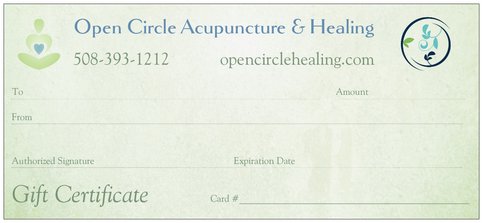Acupuncture and Hormone Balance Through all of the Life Cycles: Menstruation, Fertility, Menopause and Beyond.
Women today face many demands in their daily lives. Work, young children, aging parents, and financial pressures are just some of the factors causing ever increasing stress. As we know, stress can affect our hormonal balance and impact our overall health. Numerous studies have shown the benefit of acupuncture as a way of natural healing for a variety of women’s health conditions. Acupuncture helps direct our bodies to heal in the areas that most need it.
When talking about hormones and Chinese medicine, they tend to have one important thing in common: their emphasis on BALANCE. Hormones play a crucial role in all of our body’s functions including metabolism, sleep-wake cycles, stress and reproduction. Although most of the emphasis is put on reproductive hormones such as estrogen, testosterone and progesterone, thyroid and adrenal hormones are just as crucial to our health.
In fact, in our high paced, high stress culture, adrenal hormone imbalances are by far the most common, and when the adrenal hormone is too high or too low (which usually happens after it being too high for long enough), the other hormone imbalances usually follow in it’s wake.
These are some of the conditions we most frequently treat in our clinic:
When talking about hormones and Chinese medicine, they tend to have one important thing in common: their emphasis on BALANCE. Hormones play a crucial role in all of our body’s functions including metabolism, sleep-wake cycles, stress and reproduction. Although most of the emphasis is put on reproductive hormones such as estrogen, testosterone and progesterone, thyroid and adrenal hormones are just as crucial to our health.
In fact, in our high paced, high stress culture, adrenal hormone imbalances are by far the most common, and when the adrenal hormone is too high or too low (which usually happens after it being too high for long enough), the other hormone imbalances usually follow in it’s wake.
These are some of the conditions we most frequently treat in our clinic:

Irregular Menses: Life changes, emotional stressors, medications and hormones can all affect the length of a menstrual cycle, the amount of flow, missed cycles and unpleasant symptoms before or during the period. Acupuncture can help regulate the cycle to a healthy length by reducing the negative effects of stress on the body, normalizing hormones, and increasing blood flow to the reproductive organs.

Painful Periods: Many women who are menstruating experience mild to moderate cramping and pain during their periods, while some have debilitating pain. In our clinic, we often see changes in the severity of menstrual cramping within one to three months of regular acupuncture. A recent Australian study by the National Institute of Complementary Medicine (NICM) and the Department of Obstetrics and Gynecology at the University of Auckland reported that the intensity and duration of period pain can be reduced by up to 50 percent with acupuncture.

PMS: Headaches, cramping, breast tenderness, bloating, moodiness, acne, insomnia, and changes in bowel movements are some of the PMS symptoms experienced by women in our clinic. With regular treatments, most women see an improvement in their PMS symptoms within one to three cycles. Although there are not a lot of studies regarding PMS and Acupuncture, The British Acupuncture Council sites a number of studies indicating that acupuncture may help reduce PMS in a number of ways. It can increase relaxation and reduce tension in the body, alter the brain’s mood chemistry to help negative emotions, stimulate nerves that release endorphins and change the processing of pain in the body, and reduce inflammation.

Endometriosis: An article published in the New England Journal of Medicine (June 2010) cites acupuncture as effective for the treatment of pain related to endometriosis. The publication notes that a randomized, sham-controlled trial of women suffering from endometriosis pain demonstrated that acupuncture was an effective treatment modality. A recent meta-analysis of 10 small studies, published in October 2017 in PLOS One also suggests that acupuncture reduces pain and serum CA-125 levels (a positive effect on peripheral blood).

Infertility: Most of the larger scale studies regarding acupuncture and fertility are focused on treatment the day of embryo transfer in IVF treatment (2-3 acupuncture treatments). Several studies have found statistically significant improvement in the rates of IVF pregnancies with acupuncture. Treatment in our clinic is much more comprehensive than a few treatments. Ideally, we prepare the body for pregnancy by regulating the menstrual cycle and hormones, increasing the blood flow to the uterus, improving its lining, and bringing the body into a state of optimal health. Clinically, we have seen improved hormone levels as well as an increase in the number and quality of follicles produced during IVF treatment. We’ve also seen natural pregnancies occur outside of IVF cycles. It is well known that undergoing treatment for fertility is a highly stressful proposition. Acupuncture can definitely help relax women during this difficult time.

Pregnancy: Acupuncture is safe during pregnancy when performed correctly. This was illustrated in an article published in the June 2014 issue of Acupuncture in Medicine. Given its safety, acupuncture can be a very helpful therapy for women experiencing nausea, vomiting, depression, anxiety, headaches, back pain and other types of discomfort during pregnancy. A study published in Birth March 2002 concluded that acupuncture is an effective treatment for women who experience nausea and dry retching in early pregnancy. Years of practice have shown that acupuncture treatments throughout pregnancy enhance the health of the mother, prevent complications and influence the development of the baby. In our practice, we also help women relax and prepare their bodies for giving birth. Acupuncture can also turn beech babies. Moxabustion, a type of acupuncture, was applied to 130 pregnant women with breech presentations. Moxabustion significantly increased the number of headfirst births, according to the Journal of the American Medical Association.

Postpartum Support: Acupuncture has been used for thousands of years to treat many conditions in women during and after pregnancy. A study published in the Journal of Acupuncture and Tuina Science in 2014 indicated that acupuncture plus psychological intervention is as effective as fluoxetine for the treatment of postpartum depression. We use acupuncture to restore the mother’s energy levels after the stress of birth, alleviate depression and anxiety, and relieve backache and other kinds of pain once the baby is born.

Peri-Menopausal & Menopausal Symptoms: Women may experience symptoms such as hot flashes, night sweats, vaginal dryness, heart palpitations, anxiety, and insomnia before and after menopause. Acupuncture can help a woman’s body through this transition. A year-long NCCIH (National Center for Complementary and Integrative Health) study of acupuncture was conducted by researchers from Wake Forest School of Medicine and Duke University School of Medicine and published in the journal Menopause in 2016. It showed that acupuncture treatments may significantly reduce hot flashes and other vasomotor symptoms and improve some quality-of-life measures associated with menopause. The benefit lasted for at least 6 months.
Acupuncture has a regulating effect on the body and can help promote more optimal functioning of many different hormonal imbalances in the body, from sleep, energy, mood and digestion. By looking at the different areas of the body and the symptoms they are presenting with, Chinese medicine can come up with the root cause of an imbalance and take natural steps to being to correct them. Over time, with acupuncture, herbs and self-care steps, equilibrium can be restored to the body and symptoms will slowly lessen while vitality and energy improve.
Hormone imbalances can be complex to treat and often lifestyle factors play an important role in successfully managing and resolving them. This includes managing stress levels, getting regular exercise, maintaining a regular sleep-wake schedule, staying hydrated, and a healthy diet. While these seem like common sense strategies, they are indeed pillars of good health and help us to maintain good health throughout the many changes we face in life.





